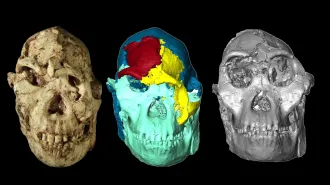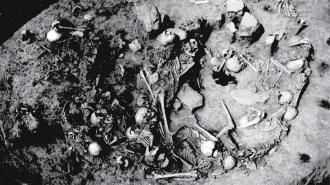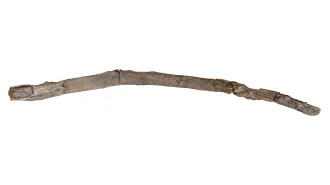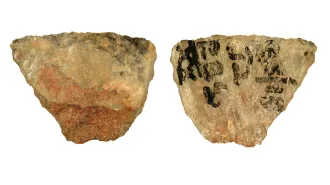Seeds of agriculture move back in time
Researchers have already established that people living in the Middle East around 23,000 years ago fished and hunted. Excavations along the shore of the Sea of Galilee in Israel now indicate that the menu for these Stone Age folk also included a plentiful portion of seeds from wild grasses along with a side of grains from wild cereals, such as wheat and barley.
This discovery pushes back by 10,000 years Homo sapiens‘ shift to a plant-rich diet, say Ehud Weiss of Harvard University and his coworkers. That transition in eating habits set people on the path to farming, a practice that began in the Middle East between 11,000 and 10,000 years ago, according to the researchers.
Weiss’ group recovered more than 90,000 charred plant remains at a site called Ohalo II. Waterlogged soil there had preserved the delicate edibles. Around a grinding stone located in one of the site’s huts, the researchers uncovered many wild-grass seeds and smaller numbers of wild-cereal grains.
Other evidence at Ohalo II and at nearby sites suggests that from 23,000 to 8,000 years ago, wild-grass seeds gradually disappeared from inhabitants’ diets as the cereals gained favor.
The new study appears in the June 29 Proceedings of the National Academy of Sciences.






